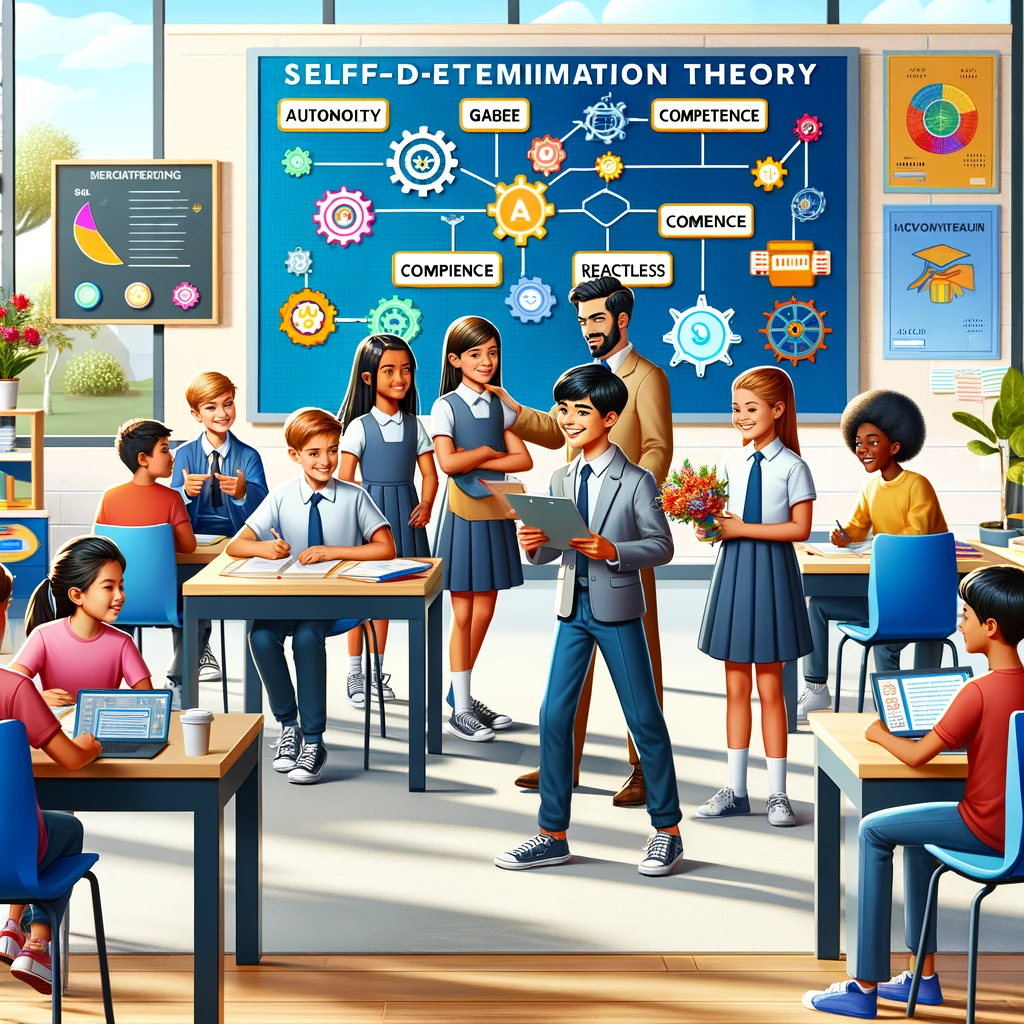The Role of Self-Determination Theory
The Role of Self-Determination Theory in Enhancing Learning

Introduction to SDT's Role in Education
SDT's Psychological Perspective
Importance in Educational Contexts
Self-Determination Theory (SDT) offers a unique lens for understanding motivation in educational settings. Developed by Edward Deci and Richard Ryan, it prioritizes the quality of inspiration, centering around autonomy.
The Three Pillars of SDT
Autonomy
Competence
Relatedness
At the heart of SDT are the psychological needs for autonomy, competence, and relatedness. These needs are critical for psychological growth, well-being, and learning.
Intrinsic vs. Extrinsic Motivation in SDT
Definitions and Differences
Impact on Learning
SDT differentiates between intrinsic and extrinsic motivation. Intrinsic motivation is self-driven; for example, students learn for enjoyment. Extrinsic motivation is outcome-driven, often linked to rewards or avoiding consequences.
Educational Strategies Based on SDT
Promoting Autonomy in Classrooms
Minimizing Controlling Behaviors
Autonomy-supportive strategies in education, as per SDT, involve providing choice and acknowledging students' feelings. This contrasts with controlling methods that can dampen intrinsic motivation.
The Effectiveness of SDT in Education
Enhanced Engagement
Improved Psychological Well-being
Studies indicate that satisfying the three critical needs of SDT in educational settings leads to greater student engagement, higher academic achievement, and improved psychological well-being.
Implementing SDT in Classroom Practices
Student-Centered Approaches
Responsibility and Exploration
Implementing SDT involves embracing student-centered approaches, encouraging exploration, and allowing students to take responsibility for their learning, which fosters intrinsic motivation.
SDT's Influence on Feedback and Assessment
Constructive Feedback
Focusing on Individual Growth
In line with SDT, feedback in educational settings should be constructive and focused on individual growth, catering to the need for competence and promoting intrinsic motivation.
Conclusion
SDT serves as a foundational theory in educational psychology, guiding strategies that enhance academic performance and support students' overall psychological development.